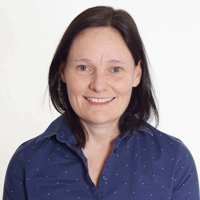Registration is now closed. You can watch the event below.
If you have any questions, please contact Beth Hagen, Events Coordinator, Royal Academy of Engineering at [email protected].
In March 2023, the government published its UK Science and Technology (S&T) Framework which set out the ’five technologies that are most critical to the UK’: quantum technologies, semiconductors, engineering biology, artificial intelligence, and telecommunications. In this Critical Conversations series we will hear from those at the forefront of developing these critical technologies.
Professor Mather is a Chair in Emerging Technologies and working to create the next generation of quantum sensors to transform the way we sense the world around us, while Professor Coveney brings theory, algorithms and software into direct confrontation with existing quantum devices.
Critical conversations series
Our future Critical Conversations will explore the other four critical technologies and broadcast on ‘LinkedIn Live’ from July 2023 to spring 2024.
Bringing together the thoughts of leading experts from across the Academy’s networks, our critical conversations explore issues of relevance to global professional engineering community and wider society. Fellows, awardees, and engineering partners gather to tackle topical issues of relevance to the global professional engineering community and wider society.
Diversity monitoring form
The Academy is committed to building an inclusive economy that works for everyone. To help us achieve this, we would like to collect soma basic anonymous data about the event attendees. If you would like to help, please complete the diversity monitoring form by logging into your user account on our website and completing ‘Update my D&I data’

Dr Hayaatun Sillem CBE
Hayaatun is CEO of the Royal Academy of Engineering and Queen Elizabeth Prize for Engineering Foundation. She co-chairs with the Science Minister the government’s Business Innovation Forum and co-chaired with Sir Lewis Hamilton his Commission on improving Black representation in motorsport. She is a trustee of various charities, member of the government’s Levelling Up Advisory Council and Digital Skills Council and NXD at construction company Laing O’Rourke. She has been named as one of the ‘Inspiring 50’ women in tech in Europe and one of the most influential women in both UK engineering and UK tech. She has a Masters in Biochemistry (MBiochem) from Oxford and a PhD from Cancer Research UK/UCL. She is a Fellow of the IET, Honorary Professor at UCL and Honorary Fellow at The Queen’s College, Oxford. She has received honorary doctorates from UCL, Imperial College London, Newcastle, Brunel, Huddersfield and Southampton, as well as a Science Suffrage Award and the Engineering Professor’s Council President’s Medal. She was a finalist for the Veuve Clicquot Bold Woman Award and was made a CBE for services to International Engineering in 2019. Prior to her current roles, she was Deputy CEO at the Academy and served as Committee Specialist and later Specialist Adviser to the House of Commons Science & Technology Committee.

Professor Peter Coveney FREng

